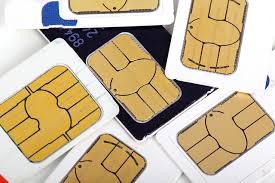ST is accredited by GMSA to produce eSIMs; ST will ship pre-formated eSIMs directly to OEMs.
Semiconductor company STMicroelectronics now has accreditation from the GSMA to produce embedded SIMs (eSIMs) and load connection credentials such as certificates and operator profiles before shipping.
The eSIM is GSMA’s standard that integrates the SIM (subscriber identification module) chip into the device — usually a small IoT or wearable device, but potentially cellphones. The eSIM eliminates the need for a SIM card and slot, which will save precious space in cellphone designs. The information on the eSIMs is rewritable by carriers, if a phone owner wants to change carriers. The eSIM will, however, remove the convenience for phone owners if they want to switch out a SIM card or remove it for some reason.
ST said in a press release that it “can now deliver personalized eSIMs, built around its ST33 secure microcontroller, directly to customers’ production facilities, ready to use with no further programming required.” The company says this makes the jobs of OEMs, mobile network operators and SIM operating-system (OS) vendors easier because it streamlines the eSIM supply chain.
ESIMs have been somewhat controversial in the U.S. Earlier this year, the Justice Department was looking into allegations that Verizon and AT&T attempted to influence GSMA eSIM standards to effective allow lock-in of the operator.
“[The eSIM] is a building block that will be essential to the building of innovations in wireless and hybrid networks going forward,” said Robert Syputa, Maravedis, LLC in an RCR Wireless News blog. “Among the advances built into the 3GPP 5G New Radio standard is expanded ability to use multiple bands and sub-bands of spectra and to organize networks on a more granular and grand basis. … eSIM is a seemingly innocuous aspect of device design that is essential to open markets.”
GSMA put the eSIM standards work on hold while DOJ ran its inquiry, but now appears to be moving forward with items such as the certification of ST for eSIM production. It’s unclear where the DOJ investigation stands. “The government looked at this issue once before, in 2016,” Verizon spokesperson Rich Young told RCR Wireless News in an email back in April, “That case was closed without action.”

